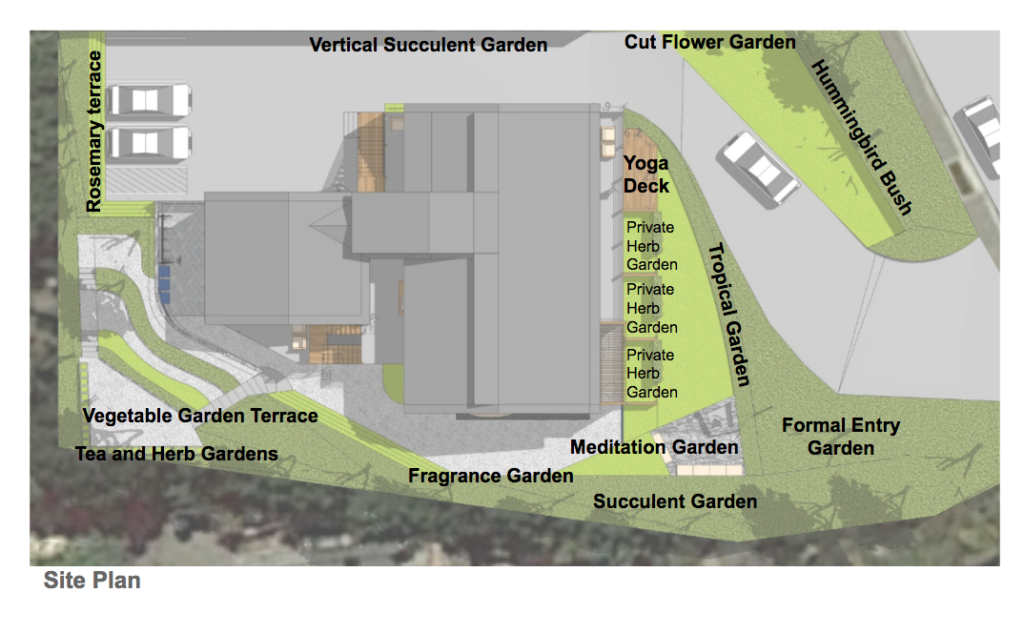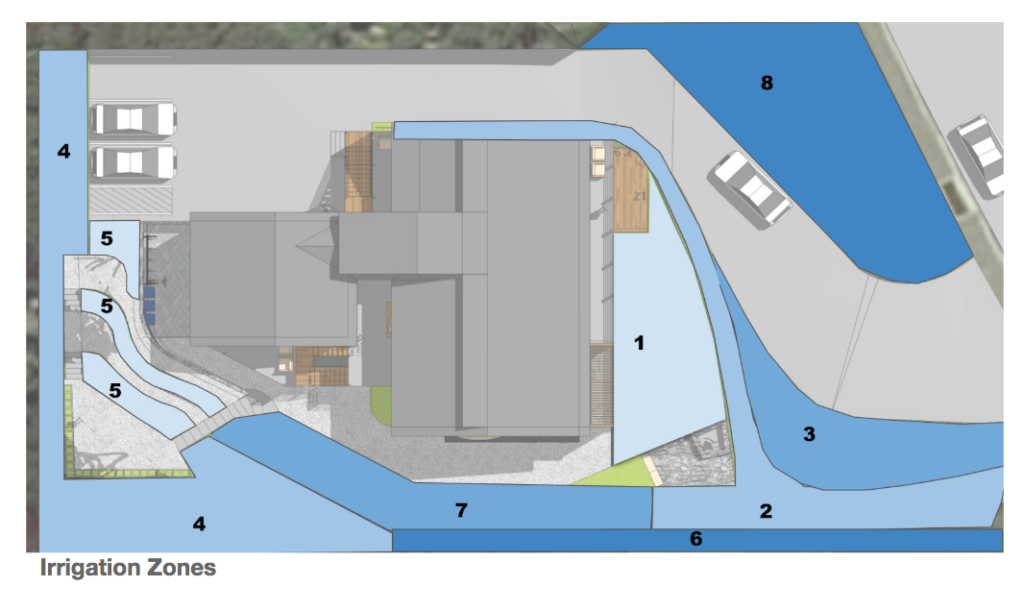Biodynamic Farming
It was important to us that in addition to the building itself, the land surrounding it is also “well.” Our implementation of the biodynamic urban farm on our property is the fulfillment of that vision. Biodynamics, developed by philosopher and scientist Dr. Rudolf Steiner in the 1920s, is a holistic, ecological, and ethical approach to farming, gardening, food, and nutrition initially.
About the Process
Biodynamic farming treats the entire land area as a living organism that is self-sustaining and generates its own vitality. It envelopes the property and creates a unique environment for the building to sit within. This enables our WELL project to be more than just a building — it is a whole environment that extends the elements of WELL outward.
With biodynamic horticulturist Lawrence Hershman’s guidance, we began to implement biodynamic techniques on site, starting with soil restoration and continuing with soil preparation, plant propagation and cultivation, irrigation system design and installation, and finally, fertilization and crop harvesting.
More About the Nourishment Concept
The productive landscape directly offers food that supports the Nourishment concept. At the same time it provides a powerful sensory experience: the beautiful scenery, the shifting aromas of various medicinal and traditional herbs, even the surprising sounds of frogs that have made our fountain a home. One of the reasons the Inn really works as a wellness destination is the immersive experience of biophilia that it creates.
OUR BIODYNAMIC URBAN FARM OPERATES ACCORDING TO THESE GUIDELINES:
We employ organic and biodynamic fertilizers (numbers 500, 501, and 508), compost, horsetail tea, and pest control remedies to balance and enliven the growing environment. We prepare and cultivate the soil, propagate seeds, and prune according to the biodynamic Lunar Sowing and Planting Calendar, which was developed according to ancient knowledge of the moon and planetary cycles corresponding to the life of the farm:
- Soil Preparation: Seasonally: June, September, December, March
- Propagation: Monthly and seasonally (depending on the season and the vegetables)
- Cultivation: Open up the soil seasonally, before each planting
- Irrigation: Daily: zones 1, 3, 5-10 min per day Every other day: zones 2, 4, 6-20 min; and deep watering every other week promotes deep root growth.
- Fertilization: Seasonally—major fertilization with mix into soil and Monthly—spray both roots and foliage. Use 500: Horn Manure, 501: Horn Silica and 508: Equisetum Horsetail Fertilizer. Barrel compost is added Spring and Fall. Biodynamic preparations of 500-508 sprayed on a monthly basis for maintenance.
- Harvest: All harvests are in the early morning. 1. Flowers on New Moon and Full Moon 2. Green vegetables and herbs—weekly; 3. Fruits—as they are ripe and ready.
SITE PLAN

IRRIGATION PLAN


WE FERTILIZE, WATER, AND HARVEST ACCORDING TO THE MOON’S CYCLES.
ACTIVITIES DURING NEW MOON:
- Fertilize soil and foliage with 501.
- Deep water so it brings the fertilizer deep into the soil, prompting the roots to seek water, which deepens the roots.
- During waxing Moon cycle, we harvest fruits and flowers so plants can focus activity on strengthening the trunk, foliage, and roots. All for promotion of upward growth.
ACTIVITIES DURING FULL MOON:
- Fertilize soil and foliage with 500 and 508.
- Deep water so it brings the fertilizer deep into the soil, prompting the roots to seek water, which deepens the roots.
- During waning moon cycle, we weed and harvest fruits and flowers so plants can focus activity on strengthening the trunk, foliage, and roots.
THE MAIN TENETS OF BIODYNAMIC FARMING WE PRACTICE ARE:
- Plant Diversity: We keep the soil healthy by allowing a variety of plants to grow on cultivated land. Our carefully selected plants work together in a mutually supportive way.
- Crop Rotation: Once a plant depletes a nutrient, companion plants release the same nutrient, renewing the soil and complementing each other during their growth cycles. As one plant matures and is then harvested, the other can then grow and have it’s turn to be harvested.
- Animal Life: Given the site’s size limitation, animal manure is purchased to supplement the native compost.
- Composting: The Inn at Moonlight Beach creates a rich compost with food and plant scraps to continually nourish the soil.
- Homeopathic Solutions: Instead of chemical bug killers, herbal and plant extracts and concentrates are diluted into sprays are used to treat compost, soil and plants in a process called dynamization. treat composts, soils, and plants
- Life Forces: In addition to earthly influences such as biology, chemistry, and physics, biodynamic farming is distinct from other agriculture practices in its acknowledgment of the role of the moon and planetary cycles in the life of the farm.
We prepare and cultivate the soil, propagate seeds, and prune the growing plants according to the biodynamic Sowing and Planting Calendar, which was developed according to ancient knowledge of the moon and planetary cycles corresponding to the life of the farm. Here is an example: https://www.rhythmofnature.net/biodynamic-calendar.
RECOMMENDED RESOURCES:
- Most trusted and respected calendar: Stella Natura Biodynamic Planting Calendar
- For beginners wanting to discover Biodynamic Farming:The North American Maria Thun Biodynamic Almanac: 2019



